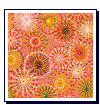 A few weeks ago I reviewed A Collection of Songs Written and Recorded 1995-1997 as part of a three-post series listening to Bright Eyes' Vinyl Box Set. In a week or two I'll listen to Every Day and Every Night and Don't Be Frightened of Turning the Page. Right now Letting off the Happiness is spinning on my turntable. I won't be reviewing Fevers and Mirrors, which is also included in the box set.
A few weeks ago I reviewed A Collection of Songs Written and Recorded 1995-1997 as part of a three-post series listening to Bright Eyes' Vinyl Box Set. In a week or two I'll listen to Every Day and Every Night and Don't Be Frightened of Turning the Page. Right now Letting off the Happiness is spinning on my turntable. I won't be reviewing Fevers and Mirrors, which is also included in the box set.Letting of the Happiness presents a Conor Oberst whose songwriting abilities have expanded considerably since he wrote those songs from 1995 to 1997. "Padriac My Prince" tears through the speakers with intense pain. Singing about a brother who drowned in a bathtub, he says "you cried but no one came and the water filled your tiny lungs." Subtly dissonant guitar plucks help his honest, shaky voice deliver the line. A feeling of overbearing, universal loneliness hovers thickly in the air as "Padriac" plays.
Though each song on Happiness attains a power similar to that of "Padriac", each track is freshly original from the rest. "Contrast and Compare" is flavored with a country tinged guitar foreshadowing Bright Eyes' most recent musical direction. "Touch" is littered with electronic noise, hinting at Bright Eyes' other recent musical direction, on Digital Ash. After the youthful and raucous "The City Has Sex" Oberst delivers the opening lines of another country-tinged song, "The Difference in the Shades", and they'll floor you:
now that its june, we'll sleep out in the gardenAll that I've already described is before side two. Oberst and friends have already crafted enough substance to create a great album. Most groups struggle to pack enough substance into two entire albums, let alone half of their sophomore effort. And then... then side two outdoes side one! It begins with "June on the West Coast", an intimate song featuring only Oberst and his acoustic guitar. These are my favorite Oberst songs, when Bright Eyes is stripped down to their most essential characteristics. Words are caught in my throat as I try to explain the wonder of this song. The best I can do is default on using Oberst's words to explain his music. His words are, really, the only way to understand Bright Eyes. "June on the West Coast" includes such gems as "I spent a week drinking the sunlight of Winnetka, California where they understand the weight of human hearts" and "I felt I was on fire with the things I could have told you. I guess I just assumed that you eventually would ask."
and if it rains, we'll just sink in to the mud
where it is quiet and much cooler than the house is
and there's no clocks or phones to wake us up
Unlike A Collection of Songs, Happiness sounds like a more complete and coherent album (not to diminish the beauty of Songs). Oberst's lyrical ability is stunning here, and leaves one craving for more of his youthful and unpretentious wisdom. The music that backs him up has also greatly developed from A Collection of Songs. It's difficult to do this album justice in a review. One needs to hear every song, or at least read a description and some lyrical excerpts of every song, to realize how monumental Happiness is for a mere sophomore album.
Happiness also foreshadows the various turns Bright Eyes music has taken since then. As mentioned already, some of the songs have received a subtle country treatment while others are littered with electronic ambiance and noises. Others, like "Padriac" would fit in well on the darker Fevers and Mirrors. Finally, I can't help but throw in a Bob Dylan comparison. If any Bright Eyes album deserves this, it's certainly Happiness. The tracks that showcase simply Oberst and his guitar, like "June on the West Coast" and "Tereza and Thomas", remind me of Bob Dylan, if not in strict style, at least in scope and spirit.






No comments:
Post a Comment